QuestionHey, i got Oscar (my ferret) about a week ago and i am having a hard time figuring out how to train him no to bite me, he doesnt bite hard and he never bites new people, but when he is playing he is, for lack of nicer word vicious. I was wondering if you could tell me a good way to train him not to nip. Two other things, how can i tell when he is playing with me and not attacking (if he even does) and what foods are safe for him to eat.
Thanks for you time
AnswerHI Nick,
Congratulations on becoming a ferret parent! I hope you are enjoying it so far!
Is Oscar a kit? That is to say, is he around eight or nine weeks of age? If he is, then he could still be growing teeth and this can be a painful process for the little fuzzy. That may be a reason why he is nipping at you. Another reason he is nipping could be that that is the way ferrets play with each other. They have thick skin so they don't even really feel it when they are being bitten by a playmate! (Ferrets roughhouse a lot and it is a little startling to watch at first but it is just their way of having fun). They don't really realize that their humans aren't equipped with that same thick skin so that may just be his invitation for you to play with him. If he is being aggressive intentionally, then you will see two big signs: one being "the hiss" and the other, the "bottle brush tail". The hiss is just what it sounds like. They make a strange hissing sound to let you know that they mean business. It is the same sound their mother would be making if they did something naughty while still in her care. The other sign, the bottle brush tail, is another obvious sign. The ferret will poof out his tail and stick it straight up in the air. This is something you would see when introducing two new ferrets and you may have even seen it when you brought him to his new home for the first time.
Anyway, to your original question, the method we just recently employed on our nippy little boy is something I like to call the "scruff and snuggle". When he bites too hard, gently pick him up by the scruff of his neck and say "no" in a firm voice. Then, making sure to keep control of his head so he can't bite you, hold him close to you and pet him and talk to him. Then, let him free to play again. If he does it again, repeat the scruff and snuggle. If he does it a third time, we do the scruff and snuggle, then put him in his cage for a ten minute time out. You could also use a pet carrier for his time outs so he doesn't link his cage with being bad. We have seen this technique work, it just takes time. A ferret who bites (and that isn't a kit) probably just needs some socializing. That isn't to say that a kit who bites doesn't need socializing either, but it could also be because he is teething. Either way, the scruff and snuggle has worked for our nippy little kit around here.
Just as a side note, please don't EVER hit your ferret. Even a tap on the nose when he nips you can lead to feelings of pain and aggression being associated with you in your ferret's mind and it will just worsen the situation.
As for your other question, ferrets are only equipped to digest meats. Therefore, sugars, fruits, vegetables and grains should not be given in any form. These can cause blockages in your fuzzy's system which can be fatal if not caught in time. They should be given a high-quality ferret food with at least 36% protein, 20% fat and less than 3% fiber. Also, when looking at the food's label, corn or corn products, soy, wheat or anything similar should not be listen in the first three ingredients.
Here is a good chart that illustrates what I mean and compares the different foods on the market:
http://www.mdferretpaws.org/care/food_treats.html
As far as treats for your ferret go, meats are the best option. Some things are good in strict moderation. Ferretone can be used as a treat. Also, chicken, turkey, and beef are good things to give as a treat now and then. Many people suggest feeding these things normally to supplement your ferret's kibble diet and to change things up a bit for them. Another tip when it comes to foods is to mix several high quality foods together and give the mix to the ferret. That way, if one food ever goes off the market, then you will have other foods to feed him.
Another side note: there are many guides out there for owning ferrets that say that raisins are a good treat for ferrets. This is not true. They can be harmful to ferrets owing to the fact that a raisin is a fruit and it has sugar in it; neither of these things are good for ferrets at all. It could lead to serious and sometimes fatal complications down the road.
I hope this helped you out a little. If you have any other questions, please don't hesitate to ask!
Sincerely,
Emilee Andrews
P.S.
As a new ferret parent, you should really pick up a copy of Ferrets for Dummies, by Kim Schilling. It is a really great resource for old and new ferret owners alike and it will answer a lot of questions for you.

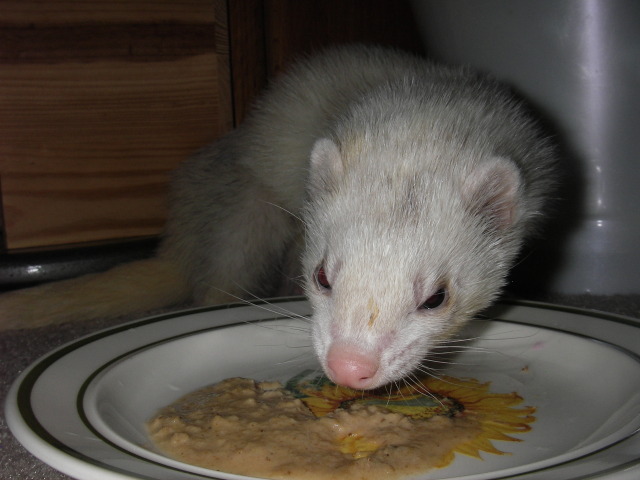 vomiting ferret that is otherwise happy
QuestionQUESTION: Dear Emilee,
first of all, you and yo
vomiting ferret that is otherwise happy
QuestionQUESTION: Dear Emilee,
first of all, you and yo
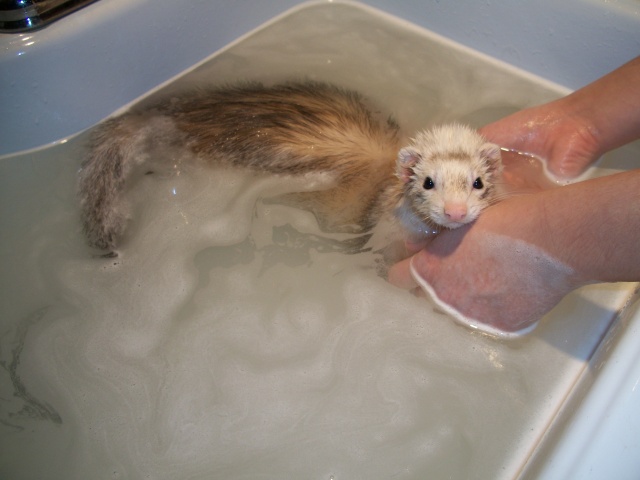 Just some basic help questions
Question
Benny!
Hi!
My ferret Benito (we just call him
Just some basic help questions
Question
Benny!
Hi!
My ferret Benito (we just call him
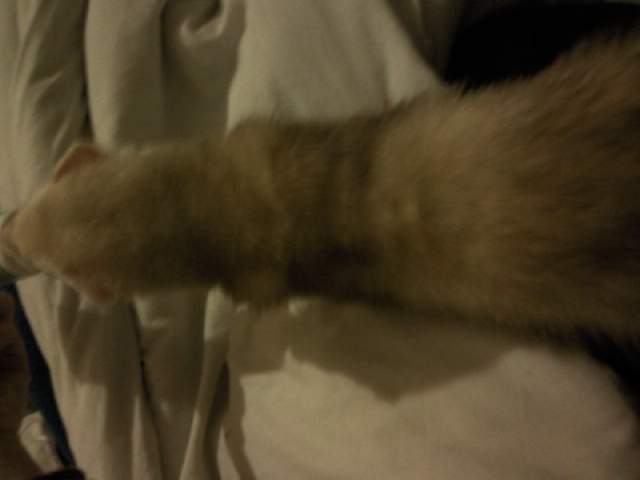 Fat boy with lumpy neck
QuestionOdins neck
QUESTION: Hi,
My 9 month old
Fat boy with lumpy neck
QuestionOdins neck
QUESTION: Hi,
My 9 month old
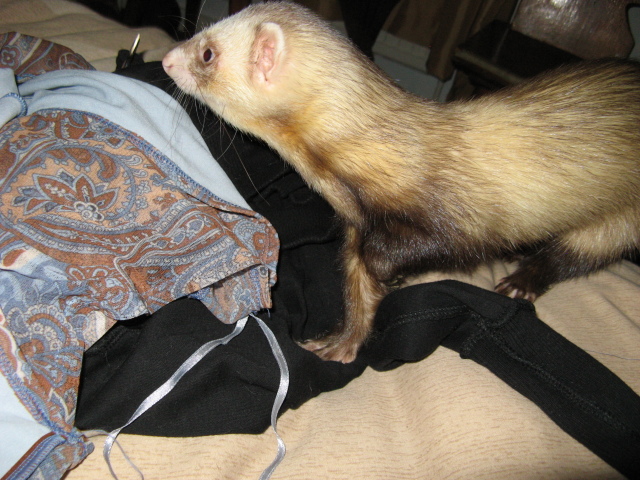 I think my ferret is to thin?
Question
Photo of Ferret
Hi
I think my ferret is to th
I think my ferret is to thin?
Question
Photo of Ferret
Hi
I think my ferret is to th
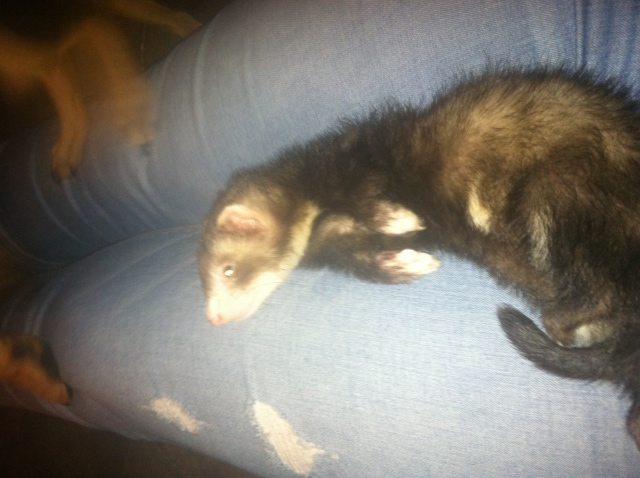 New ferret
Question
Franko the ferret
Hello,
I just boug
New ferret
Question
Franko the ferret
Hello,
I just boug